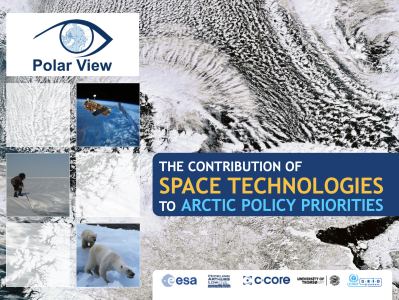The Contribution of Space Technologies to Arctic Priorities

This report compares the needs of Arctic stakeholders (as articulated in policies and strategies) with the contribution different types of satellite technologies (communications, weather, navigation, earth observation, surveillance, and science) can make to meet current and future requirements. It will help the European Space Agency (ESA) understand Arctic issues, increase the synergy between ESA activities and Arctic initiatives, and assist ESA in preparing relevant Arctic related programme proposals to meet future requirements. The Arctic is changing. At the root of much of that change is global warming. The Arctic is warming much faster than the rest of the planet, and as a result, sea ice is receding. One impact of this is the opening of Northern sea routes and the prospect of dramatically increased levels of commercial shipping. A second impact is the easier access this provides to the resource wealth of the region - hydrocarbons, minerals, and fish. A third impact is the detrimental effect it is having on land and marine wildlife. These impacts have subsequent reverberations. The increase in economic activity is multiplied many times over as supporting infrastructure and systems are put in place. With the increased activity come pollution and the danger of environmental and humanitarian disasters. With the economic gain comes the desire to protect rights and investments, and the resulting potential for conflict. All of this is at odds with the traditional livelihoods of the Arctic’s indigenous peoples.
